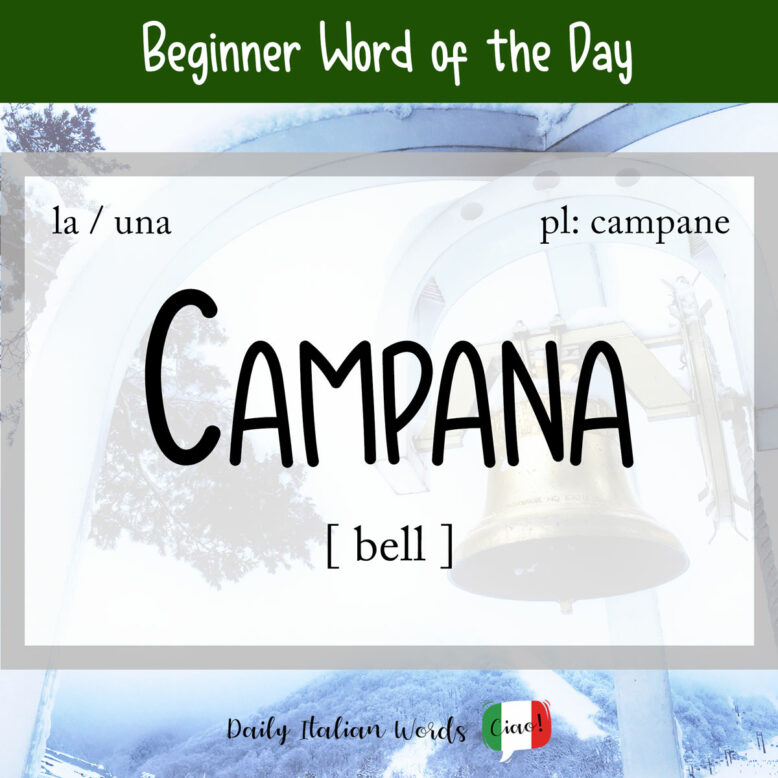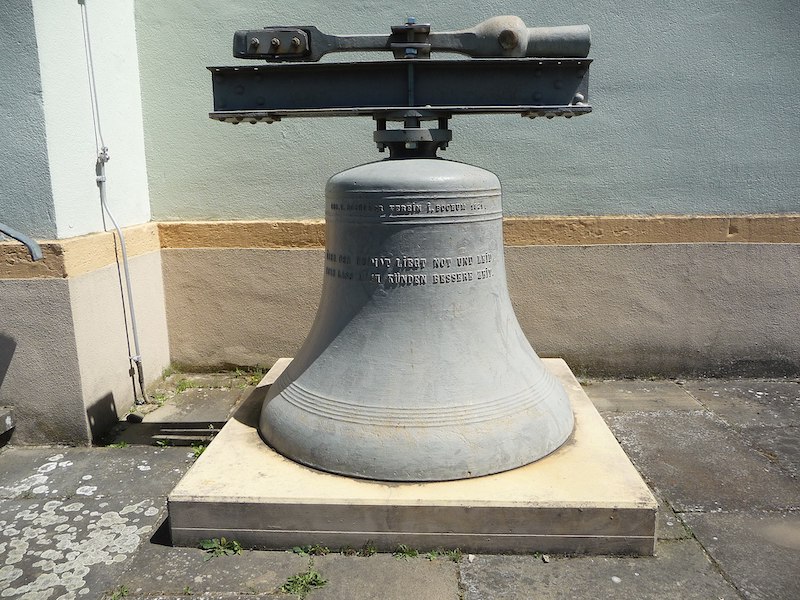If there is one thing I love about this festive time of the year, it is hearing the church bells ring throughout the city on Christmas Day.
The word for bell in Italian is campana (feminine plural: campane).

It mostly refers to medium to large-sized bells such as those found inside the bell tower (campanile) of a church.
Le campane della chiesa suonano ogni quindici minuti.
The church bells ring every fifteen minutes.

There are however many derivatives of the word campana that are used to refer to different kinds of bells.
For example, campanella is the diminutive form of campana and translates as small bell. Campanella (della scuola) is the word for school bell. The word campanella also appears in chorus of the following Italian translation of the song Jingle Bells.
Tin tin tin, tin tin tin
tintinnate ancor
campanelle della slitta
che scivolando va.
Don don don don don don dondola con te
la campanella della chiesa
la notte di Natal.
Tin tin, tin tin tin
Still clinking
Sleigh bells
that slide along.
Don don don don don don Rock with you
The church bell
Christmas night.
Another translation for small bell is campanellino. This tiny bell is the kind you would attach to a sleigh, a cat’s collar, or a Morris dancer’s costume. It is also the Italian name of the Disney character Tinkerbell.
Campanello on the other hand refers more specifically to doorbells and bicycle bells, and reception bells. The expression campanello d’allarme refers to the sound of an alarm in the literal sense but can also be used figuratively to mean warning bell, signal or sign.
La tosse non è una malattia ma può essere un campanello d’allarme.
Coughing isn’t a sickness but it could be a warning sign.
In Italian, the game hopscotch is known as il gioco della campana (the bell game). It is also used in the idiom essere sordo come una campana (to be as deaf as a post).
Finally, if you want to warn someone about an immediate danger, you can use the expression Stai in campana! which literally translates as Watch out!
Sono cintura nera di karate quindi stai in campana!
I’m a black belt in karate so watch out!
Heather Broster is a graduate with honours in linguistics from the University of Western Ontario. She is an aspiring polyglot, proficient in English and Italian, as well as Japanese, Welsh, and French to varying degrees of fluency. Originally from Toronto, Heather has resided in various countries, notably Italy for a period of six years. Her primary focus lies in the fields of language acquisition, education, and bilingual instruction.


